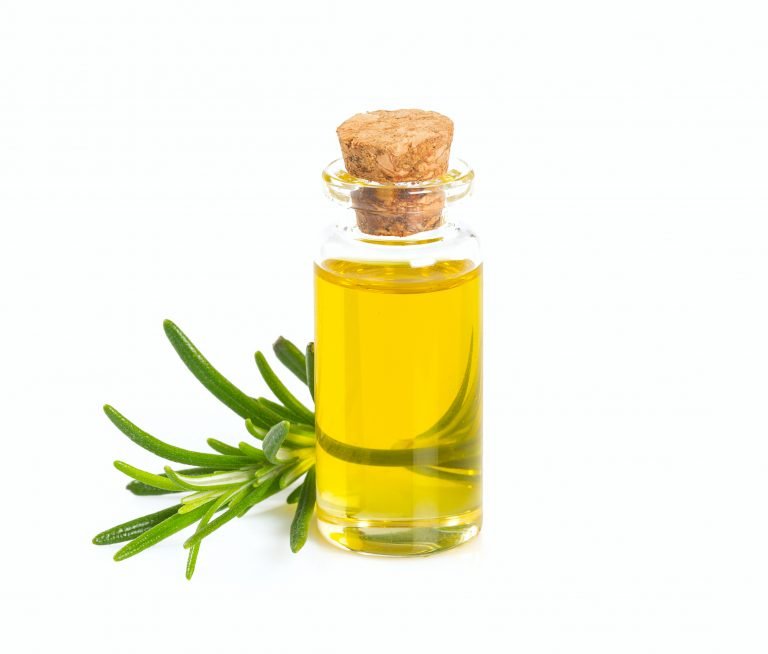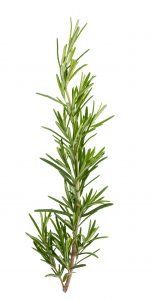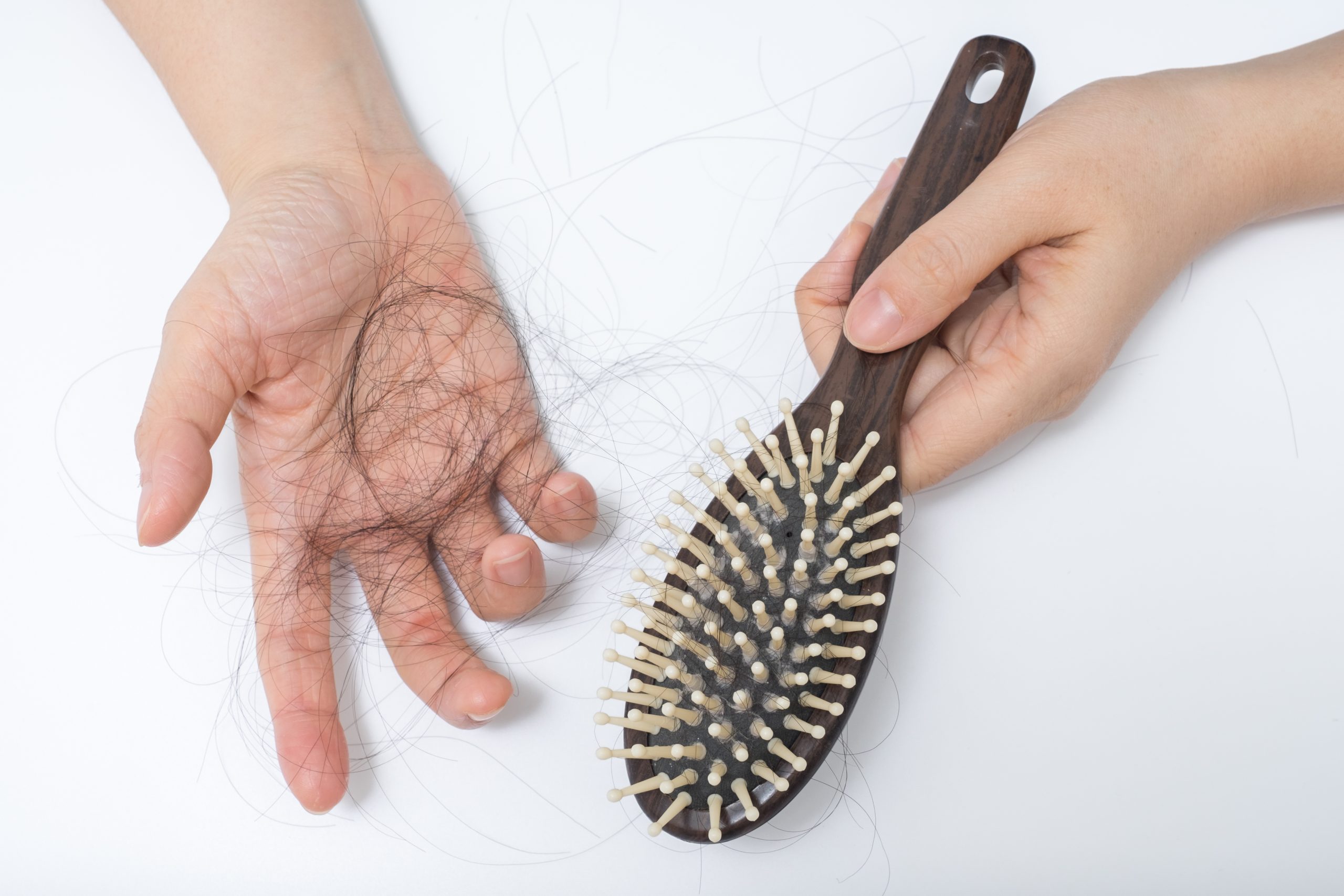
Page Contents
Herbs like rosemary are often used for all sorts of things. However, in many cases, these uses are little more than old wives’ remedies. Being able to determine which things an herb is actually useful for, and which things are just hearsay with no basis in fact, can be difficult in some cases.
You’ve likely heard that rosemary, and particularly the slightly more potent rosemary oils, are good for growing hair. But does rosemary really help with this? After all, if rosemary doesn’t help, or does so but not enough to compare to other oils you could use instead, then there is really no point in using it.
The Benefits Of Rosemary Oil
You’re here for rosemary’s benefits for your hair, but rosemary does a lot of other things for you too. To better understand how rosemary helps your thinning hair, knowing what else it can do for you is vital. After all, what helps the rest of your body will eventually have a trickle effect of benefits for your hair.
Rosemary is used for all kinds of things. Lung problems like asthma, stomach problems like ulcers, heart problems, and all sorts of random things like inflammatory disease, liver toxicity, atherosclerosis, and cataracts are all supposedly helped by rosemary.
However, most of those benefits aren’t proven ones. As far as proven rosemary benefits, at least one study done on this herb shows rosemary can kill many types of fungi and bacteria. Since many skin diseases are caused by these two things, rosemary can be extremely useful.
Another proven benefit is its antioxidant properties. Rosemary, in its oil form, has been given an ORAC value of 11070. This means rosemary oil has as much antioxidants as goji berries, which is well-known for being high in antioxidants. This is only part of how rosemary can boost your immune system.
Inflammation is yet another thing that rosemary is proven to benefit, although there isn’t as much evidence to back this one up. However, inflammation can be caused by all sorts of things, and inflammation can cause any number of problems all on its own, not just hair loss.
Finally, there was one rosemary study done that showed that this herb can help with circulation. Since circulation is vital to a lot of different things in your body, it can help with many things, including hair growth. Though rosemary has plenty of other benefits, some of which are based in fact, let’s get to the hair ones.
For Your Hair
Now, some of those rosemary benefits don’t affect your hair, at least not directly. But others, like rosemary’s anti-fungal and anti-bacterial properties, can be extremely useful. There are many harmful scalp diseases that are actually caused by various funguses or bacteria.

These diseases, once they get going on your scalp, can cause you to lose your hair. So, using rosemary oil to get rid of them will help with your hair fall.
Aside from that, rosemary has actually had a couple of studies done on it that specifically look at how it affects thinning hair from male pattern baldness. One compared rosemary to minoxidil and found them to be comparable at how well they blocked DHT.
While the people doing the study weren’t able to figure out how the rosemary helped, they theorized that the rosemary prevented the DHT from attaching to the hair follicles.
Therefore, rosemary didn’t interfere with any hormones – something many medications do ad which not everyone can physically have due to medical reasons. This makes rosemary oil a perfect option for those who would be bothered by hormone alterations but who still want to block DHT.
Though rosemary has little evidence supporting this, one study showed that it does help with alopecia areata. This is an autoimmune problem that causes hair loss. The study showed that a small percentage -less than 50%, to be precise – of the participants were benefited by rosemary oil.
So, while rosemary helps with a few causes of hair loss, it doesn’t help with all of them. For example, if your hair loss is caused by a vitamin deficiency, rosemary won’t be able to help with that. Still, rosemary helps with so many different types that you will most likely be helped at least a little.
Other Forms Of Rosemary

Besides rosemary essential oil, rosemary is found in a lot of other forms. There is rosemary water, rosemary extract, fresh rosemary, dried rosemary, and many other things, even a rosemary vinegar.
Rosemary water is something you can technically make quite easily by putting rosemary – either dried or fresh – in water for a while. Strain the tiny rosemary leaves out, and then use it as a hair rinse. Rosemary extract and oil can be made as well, but those are much more in depth.
As another option, rosemary can be made into a tea. This can then be used as a hair rinse. Or, if you intend on using rosemary internally, you can also drink the rosemary tea. Not everyone likes the taste of rosemary like this, however.
This is why most people taking rosemary prefer to do so as a supplement. There are herbal supplements that have rosemary in them, though these are harder to find as rosemary isn’t among the most popular herbs to take this way.
Or, getting rosemary leaf powder and putting it in a capsule yourself is also an option for the more adventurous.
Finally, it is possible to get powdered rosemary. Though powered rosemary isn’t common at all, you can make it yourself by putting dried rosemary into a grinder. The powdered rosemary can then be added to all sorts of things as well.
All in all, the options for ways to use rosemary are all but limitless. If there is a particular way you want to use rosemary, then there is a way to use rosemary that way.
How To Use Rosemary Oil
Rosemary oil can essentially be used any way you want to use it. That said, rosemary oil can be used internally, but you will probably get better results by using it externally.
The most popular method to use rosemary essential oil, just like any other beneficial oil, is probably by applying it directly to your scalp. However, there are many different ways to do even that. The simplest of these is to simply add rosemary oil to something that you already put on your hair.
For example, shampoo or conditioner are both easy things to add an oil to. Just don’t add too much rosemary oil, or you risk your hair becoming oily. Or, even easier, you can find a shampoo and/or conditioner that already has rosemary as one of the ingredients.
If you use a hair mask, rosemary oil can also be added to it, no matter what type of hair mask it is. This leaves the rosemary oil in your hair for longer, allowing you to get more benefits.
Another simple option is applying the rosemary oil directly to your scalp and either brushing it into your hair or rubbing it into your scalp. Doing just a few drops of it this way shouldn’t make your hair noticeably oil.
You’ll need a carrier oil to go with the rosemary in this case. However, this carrier oil can be another oil that is good for your hair growth, like jojoba oil or coconut oil.
If you want the rosemary oil to help with other things besides your hair, however, internally is probably best. This can be done by adding just a drop or two of it to foods that already have rosemary in them. A little more rosemary added to spaghetti, for example, isn’t likely to be too noticeable.
Cautions For Rosemary Oil
Rosemary, just like anything else, can be used too excessively. Of course, part of the effects you might need to look for will depend on how or where you use the rosemary oil. For example, the side effects of using rosemary essential oil topically are going to be slightly different than taking rosemary oil internally.
Of course, some of the side effects are likely to carry over and be the same regardless. Vomiting is one that isn’t likely to happen when you use rosemary externally, but can happen when using it internally. On the other hand, sun sensitivity and skin redness can also be caused by internal use, but these effects are just as likely to be caused by external use.
The same goes for the almost microscopical chance that rosemary oil might contribute to a seizure. Some say that rosemary can help treat seizures, while other things warn that rosemary causes them. There is an equal lack of knowledge about rosemary and liver and kidney problems.
Next, rosemary oil, especially the more concentrated types, are very potent. Getting any rosemary oil in your eyes or on any sensitive skin will cause a burning sensation. This is why using a carrier oil like jojoba oil, olive oil, or another hair oil for rosemary is extremely important. You can cause permanent eye damage otherwise.
Even using rosemary oil on your scalp, it is important to remember to add the carrier oil. Not doing so can result in almost immediate redness and burning, especially if heat is added.
Finally, since comparatively little is known about rosemary, it isn’t entirely known yet if it is safe to take with medications. Though applying rosemary topically probably won’t affect internal medications, there are topical medications that it might have some type of an effect on.
Final Thoughts
All in all, rosemary hair oil can provide a list of benefits to both you and your hair, even if you have alopecia areata. In addition, rosemary has the advantage of smelling nice, which not all hair growth oils can say. It is not among the most popular treatments for thinning hair, but it can still help.
There is still much unknown about rosemary and what all it is capable of for things like androgenetic alopecia. However, as with any plant, rosemary is far safer to use than medications, drugs, or chemicals if your goal is having healthy hair.
Some people with hair thinning problems cannot use conventional hair growth medications for one reason or another. Rosemary makes a great alternative for them. The fact that a little rosemary oil can also be used as a simple, non-invasive way to prevent hair loss from happening in the first place due to male pattern baldness certainly doesn’t hurt it any.
So, even if you don’t have any hair loss yet, try some rosemary oil anyway, and it might be able to prevent, or at least slow it.







Will rosemary oil have an effect on colored hair, espespecialy roots?